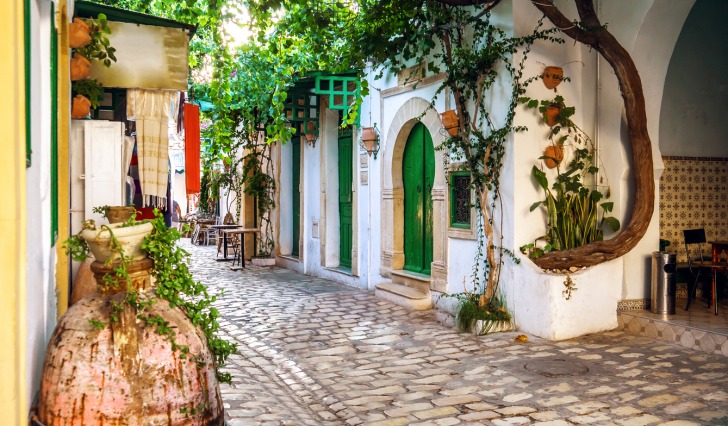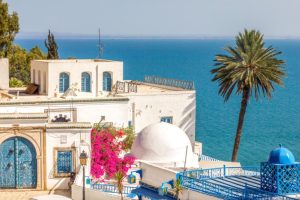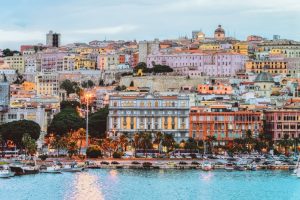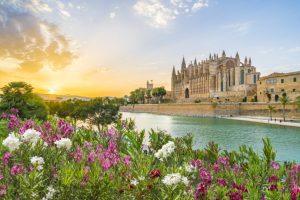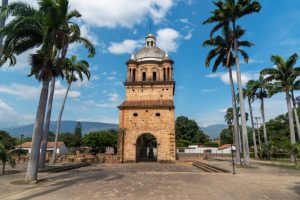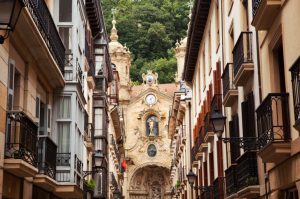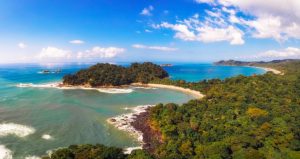 Tunisia : Safety by City
Tunisia : Safety by City
Tunisia - safety as a country Mahdia, Tunisia, is a city bathed in warm sunshine on the coastal shores of the majestic Mediterranean Sea.
There is no wonder why tourists are attracted to the area’s pristine beaches, historic ruins, and world-famous religious sites and mosques which showcase remnants of Islamic and Roman cultures.
If you’re thinking about traveling to Mahdia and looking for ways to stay safer, this is the guide for you!
Our guide provides an overview of the common warnings and dangers in Mahdia and ten tips for staying safer when traveling abroad.
Dive in to learn about which areas to visit, which areas to avoid, and which areas are strictly prohibited for tourists in the guide below!
Warnings & Dangers in Mahdia

OVERALL RISK: HIGH
The overall travel risk for people visiting Mahdia is traditionally low. However, recent developments and the declaration of a local state of emergency in late April 2024 have increased the travel risk for tourists – especially those visiting from Western countries, as anti-Western sentiment in this region is growing in the form of terrorism-related acts against tourists. The US Department of State recommends postponing non-essential travel until the state of emergency expires in December 2024.

TRANSPORT & TAXIS RISK: MEDIUM
In most cases, transport and taxis pose a moderate threat to US travelers who use local public transportation like buses and taxis. Tourists should be aware of the increasing likelihood of petty crimes like pickpocketing when taking crowded public transit services. The latest advisory from the State Department advises against all forms of land travel across the Sahara Desert due to increasing acts of terror.

PICKPOCKETS RISK: HIGH
The risk of being the victim of a bump-and-grab or distraction-based pickpocketing is high in Mahdia and surrounding areas. People traveling in the area for essential purposes should take care to keep valuables like cash and cell phones out of sight and avoid unpopulated and unlit areas of the city. Risks of pickpocketing and more severe violent crimes increase on the outskirts of the city.

NATURAL DISASTERS RISK: MEDIUM
The complex weather systems of Mahdia make the area prone to natural disasters, including unforgiving heat waves, sandstorms, coastal erosion, drought, flooding, and earthquakes. People traveling during the summer months should heed local weather warnings, dress for extremely high temperatures, and take steps to remain hydrated at all times in the face of potentially blistering heat.

MUGGING RISK: MEDIUM
Personal attacks against people, like muggings, pose a moderate risk to visitors. People visiting highly populated and well-patroled areas of the city, which include popular local beaches, tourist attractions, and local resorts, are less likely to be the victims of muggings when they use common-sense safety tips. People venturing into the outskirts of the city and those entering shady and unfamiliar areas substantially increase their mugging risk.

TERRORISM RISK: HIGH
The latest travel safety reports issued by the US Department of State show increasing numbers of terroristic threats in and around the city of Mahdia, Tunisia. While the city and tourist attractions are relatively safe and well-patrolled, increasingly unknown dangers can await wayfarers who venture out into the desert and those traveling near the borders of Algeria and Kasserine Governorate.

SCAMS RISK: HIGH
Becoming the victim of local scammers is likely a reality for unsuspecting visitors who fall prey to a network of connected scammers who operate in tourism-related areas. Travelers should be aware of tourist traps with inflated prices for local goods and keep a close eye on charges for transportation services, hotel bills, and transit costs.

WOMEN TRAVELERS RISK: HIGH
The elevated travel risk for all people visiting Madhia means that women travelers are also at risk of becoming victims of property or personal crime while traveling abroad in Tunisia. Solo female travelers should take necessary safety measures and precautions to stay safer when traveling and adhere to local dress codes and customs to avoid standing out as a potential target.

TAP WATER RISK: HIGH
Drinking water in Tunisia undergoes a different filtration process than water in the United States. As such, travelers should avoid drinking local water, which can cause digestive upset, and stick to drinking bottled water from known sources while on their trip.
Safest Places to Visit in Mahdia
The safest places to visit in Mahdia include those that are well-patroled by local police and security officials and well-populated areas.
The Tourist Zone: People seeking safe adventures in Mahdia can find comfort and fun in the local tourist zone.
The zone includes popular local beaches, resorts, and tourist attractions, such as mosques and other cultural attractions.
The Medina: Visitors interested in learning more about Tunisian culture and those who enjoy walking tours can navigate the maze-like alleyways of The Medina, which includes examples of local architecture and culture.
The Port: One of the benefits of visiting this coastal African city is having access to its port-side fish market.
This popular local fish market is situated along the Mediterranean coastline near to popular local eateries cafes, and restaurants where tourists can indulge in local cuisine and favorites like fantastic mint tea.
Places to Avoid in Mahdia
Incoming Tunisian travelers should note that many areas of the country are currently under a state of emergency and a Level 4 Do Not Travel advisory issued by the US Department of State.
Increasing terroristic acts and threats, along with anti-Western sentiment, make it particularly dangerous for Americans to travel in the area.
Some areas of the country, like the Sahara Desert, are strictly prohibited from land travel by US residents due to growing threats to personal safety.
Avoid traveling to areas outside of cities and tourist zones, as these locations may not have adequate security.
Tourists who travel to isolated or restricted areas do so at their own risk, as the likelihood of rescue or assistance diminishes further away from the city and into the desert.
Don’t travel anywhere alone at night, and remain in groups whenever possible.
The US government has earmarked the following areas as inadvisable for travel under the Level 4 advisory.
Steer Clear of the Following Borders When Traveling in Tunisia
- Libya
- Mali
- Mauritania
- Niger
Incoming travelers should do their research on the country, its customs, and safe zones well in advance of traveling to the area.
Learning about local customs, rules, policies, procedures, language, currency, and local etiquette could save your life in the event that a life-threatening emergency arises.
US travelers should register their international travel plans with the State Department to make it easier to find them within the country in case of emergency or evacuation.
Safety Tips for Traveling to Mahdia
Follow these ten travel safety tips to help keep you and your travel party safer when visiting Tunisia.
- Avoid walking alone at night – especially in dark areas and unfamiliar territory.
- US travelers should note that there is growing anti-Western sentiment in the country. It is crucial to register your travel plans with the US State Department and to develop an emergency evacuation plan — before you arrive.
- People visiting the country for essential travel should hire reputable local guides for safer travel. Local tour guides are more familiar with the country and can help Americans steer clear of inadvisable travel areas and sketchy neighborhoods.
- The local culture is conservative – especially around religious sites, tourists should respect the local culture and values by dressing in moderate clothing that covers most of the body.
- Steer clear of crowded areas and public demonstrations where political violence can suddenly erupt along with high levels of pickpocketing and theft.
- Temperatures in Madhia, Tunisia, can reach well above one hundred degrees during the hottest part of the year.
- Dress for high temperatures, which increase in the central and northern parts of the country.
- Drink bottled water and keep water on your person at all times when venturing outside into high temperatures.
- The local language of the people is Arabic. Learning conversational Arabic can facilitate easier communication when seeking local services and support.
- Completely avoid locations listed as areas of concern. Do Not Travel to these areas, as emergency help and support will likely be unavailable.
So... How Safe Is Mahdia Really?
Visiting Tunisian towns and marveling at local landscapes is usually relatively safe for US tourists.
However, growing numbers of violent incidents and acts of terror currently have many areas of the country under a State of Emergency declaration or Level 4 Do Not Travel Advisories.
Travelers who ignore these global warnings and risks may do so at their own peril.
Emergency support, medical services, and rescue options may be limited or non-existent for people venturing into unsafe areas.
People traveling for non-essential reasons should register for their trip with the US Department of State’s travel program in case of an emergency.
Visit the US State Department website for the latest updates and travel advisories for people traveling in and around Mahdia, Tunisia.
How Does Mahdia Compare?
| City | Safety Index |
|---|---|
| Mahdia | 32 |
| Djerba | 53 |
| Tunis | 59 |
| Hammamet | 78 |
| Sidi Bou Said | 42 |
| Bab Bhar | 56 |
| Kairouan Medina | 52 |
| Sao Paulo (Brazil) | 45 |
| Rio de Janeiro (Brazil) | 43 |
| Sofia (Bulgaria) | 73 |
| Siem Reap (Cambodia) | 63 |
| Phnom Penh (Cambodia) | 61 |
| Niagara Falls (Canada) | 87 |
Useful Information

Visas
Tunisian travelers will need to present a valid passport for entry into the country. A Visa is not required in most cases unless visitors intend to remain in the country for longer than 90 days. At this point, newcomers must apply for a temporary or residential Visa.

Currency
Exchange rates between the local Tunisian Dinar and the US Dollar are favorable. However, the country has strict rules on the importing and exporting of currency. Importing any amount of local currency into the country is strictly prohibited.

Weather
People visiting Mahdia will find that high temperatures in this region can be extreme. Avoid weather-related issues or illness by dressing appropriately and staying hydrated. Locals tend to stay indoors during the hottest part of the day, which is mid-afternoon.

Airports
Tunisia's local airport has few direct flights. Incoming travelers will likely need to make connecting flights from international airports in Europe or the Middle East to enter the country.

Travel Insurance
Investing in travel insurance that can help offset the costs of lost luggage, document replacement, and medical emergencies is paramount for US travelers planning on visiting Tunisia. Talk to your local travel agent or insurance agent to get more information on affordable travel insurance.
Mahdia Weather Averages (Temperatures)
Average High/Low Temperature
| Temperature / Month | Jan | Feb | Mar | Apr | May | Jun | Jul | Aug | Sep | Oct | Nov | Dec |
|---|---|---|---|---|---|---|---|---|---|---|---|---|
| High °C | 17 | 17 | 19 | 21 | 25 | 29 | 32 | 33 | 30 | 26 | 21 | 18 |
| Low °C | 8 | 9 | 11 | 13 | 16 | 20 | 23 | 23 | 21 | 18 | 13 | 9 |
| High °F | 63 | 63 | 66 | 70 | 77 | 84 | 90 | 91 | 86 | 79 | 70 | 64 |
| Low °F | 46 | 48 | 52 | 55 | 61 | 68 | 73 | 73 | 70 | 64 | 55 | 48 |
Tunisia - Safety by City
| City | Safety Index |
|---|---|
| Bab Bhar | 56 |
| Djerba | 53 |
| Hammamet | 78 |
| Kairouan Medina | 52 |
| Mahdia | 32 |
| Sidi Bou Said | 42 |
| Sousse | 48 |
| Tunis | 59 |
